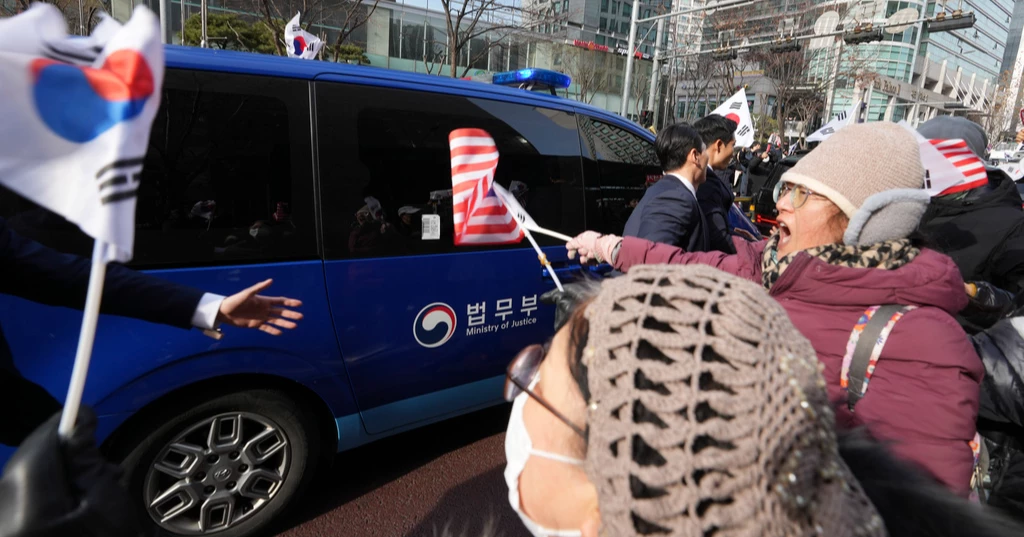On Saturday, South Korea's impeached president presented arguments for his release before a Seoul judge as the court assessed a law enforcement request for his formal arrest, reports
Yoon, detained since his capture on Wednesday in a large-scale operation at his home, faces potential rebellion charges related to his December 3 declaration of martial law, which triggered the nation’s most serious political crisis since its democratization in the 1980s.
South Korea's impeached President Yoon Suk Yeol arrested over martial law declaration
The Corruption Investigation Office for High-Ranking Officials, leading a joint probe with the police and military, asked the Seoul Western District Court to approve an arrest warrant for Yoon.
During a nearly five-hour private hearing, Yoon’s lawyers said he spoke to the judge for approximately 40 minutes. His legal team and anti-corruption agencies presented opposing views on whether he should remain in custody, but the lawyers did not disclose his specific remarks.
The judge is expected to announce a decision by late Saturday or early Sunday. Yoon’s motorcade was seen leaving the court on Saturday evening for a detention center, where he will await the ruling.
Should Yoon be arrested, investigators can detain him for up to 20 days, after which they would hand the case to public prosecutors for indictment. If the court denies the request, Yoon will be released and return home.
South Korean special envoy to pay “goodwill” visit to Bangladesh Jan 22-23
Yoon was transported to court from a detention center in Uiwang, near Seoul, in a blue Justice Ministry van, accompanied by police and the presidential security service.
The motorcade entered the court’s basement parking lot as thousands of Yoon’s supporters gathered on nearby streets, waving banners and chanting slogans demanding his release. Some protesters briefly breached police lines and tapped on the van's windows as the motorcade slowed near the court. Yoon did not speak to the media before entering the hearing.
It was unclear until Saturday morning whether Yoon would attend the hearing.
His defense attorneys met him at the detention center, and he agreed to follow their advice to attend personally, according to one of Yoon’s lawyers, Yoon Kab-keun. The president argued that his decree was a legitimate exercise of authority and that the rebellion charges would not stand in a criminal or constitutional court, which is also deciding whether to formally remove or reinstate him.
South Korea presidential security chief questioned amid tensions
Nine individuals, including Yoon’s defense minister, police chief, and top military commanders, have already been arrested and indicted for their roles in enforcing martial law.
The crisis began when Yoon imposed military rule in an attempt to break legislative deadlock, sending troops to the National Assembly and election offices. The standoff lasted only hours after lawmakers bypassed the blockade and voted to rescind the measure. The opposition-dominated assembly voted to impeach him on December 14.
If Yoon is arrested, it could lead to an extended period of custody, potentially lasting months or longer.
Should prosecutors indict Yoon on charges of rebellion and abuse of power, they could detain him for up to six months before trial.
South Korean law mandates life imprisonment or the death penalty for orchestrating rebellion.
Yoon’s lawyers argue that detention is unnecessary during the investigation, as he poses no flight risk or threat to destroy evidence.
Investigators counter that Yoon ignored multiple requests for questioning, and that the presidential security service blocked an attempt to detain him on January 3. His refusal has raised concerns about whether he would comply with legal proceedings without being in custody.
